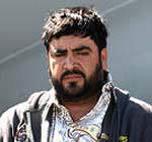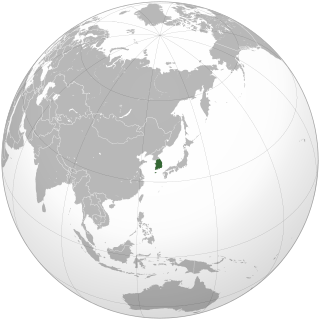
The Marihuana Tax Act of 1937, Pub. L.Tooltip Public Law 75–238, 50 Stat. 551, enacted August 2, 1937, was a United States Act that placed a tax on the sale of cannabis. The H.R. 6385 act was drafted by Harry Anslinger and introduced by Rep. Robert L. Doughton of North Carolina, on April 14, 1937. The Seventy-fifth United States Congress held hearings on April 27, 28, 29th, 30th, and May 4, 1937. Upon the congressional hearings confirmation, the H.R. 6385 act was redrafted as H.R. 6906 and introduced with House Report 792. The Act is referred to, using the modern spelling, as the 1937 Marijuana Tax Act. It was overturned in 1969 in Leary v. United States, and was repealed by Congress the next year.

Thomas Hale Boggs Sr. was an American Democratic Party politician and a member of the U.S. House of Representatives from New Orleans, Louisiana. He was the House majority leader and a member of the Warren Commission.

The war on drugs is the policy of a global campaign, led by the United States federal government, of drug prohibition, military aid, and military intervention, with the aim of reducing the illegal drug trade in the United States. The initiative includes a set of drug policies that are intended to discourage the production, distribution, and consumption of psychoactive drugs that the participating governments, through United Nations treaties, have made illegal.
The Rockefeller Drug Laws are the statutes dealing with the sale and possession of "narcotic" drugs in the New York State Penal Law. The laws are named after Nelson Rockefeller, who was the state's governor at the time the laws were adopted. Rockefeller had previously backed drug rehabilitation, job training and housing as strategies, having seen drugs as a social problem rather than a criminal one, but did an about-face during a period of mounting national anxiety about drug use and crime. Rockefeller, who pushed hard for the laws, was seen by some contemporary commentators as trying to build a "tough on crime" image in anticipation of a bid for the Republican presidential nomination in 1976. The bill was signed into law by Governor Rockefeller on May 8, 1973.
Mandatory sentencing requires that offenders serve a predefined term of imprisonment for certain crimes, commonly serious or violent offenses. Judges are bound by law; these sentences are produced through the legislature, not the judicial system. They are instituted to expedite the sentencing process and limit the possibility of irregularity of outcomes due to judicial discretion. Mandatory sentences are typically given to people who are convicted of certain serious and/or violent crimes, and require a prison sentence. Mandatory sentencing laws vary across nations; they are more prevalent in common law jurisdictions because civil law jurisdictions usually prescribe minimum and maximum sentences for every type of crime in explicit laws.

The Central Narcotics Bureau (中央肃毒局) or CNB is a department under the Ministry of Home Affairs (MHA) tasked to combat drug trafficking and distribution and is responsible for coordinating all matters pertaining to drug eradication in Singapore.
Juan Ramón Matta-Ballesteros is a Honduran former major narcotics trafficker who has been credited with being one of the first to connect Mexican drug traffickers with the Colombian cocaine cartels. This connection paved the way for a major increase in the amount of cocaine smuggled into the United States during the late 1970s and throughout the 1980s. Matta was indicted for operating several major cocaine smuggling rings in United States in the early 1980s. He was also one of the narcotics traffickers accused of the kidnap and murder of American DEA agent Enrique Camarena in 1985.

Waxey Gordon was an American gangster who specialized in bootlegging and illegal gambling. An associate of Arnold Rothstein during prohibition, he was caught up in a power struggle following Rothstein's death. Fellow Rothstein associates Charles "Lucky" Luciano and Meyer Lansky provided authorities with evidence that led to his imprisonment for ten years.

In the United States, increased restrictions and labeling of cannabis as a poison began in many states from 1906 onward, and outright prohibitions began in the 1920s. By the mid-1930s cannabis was regulated as a drug in every state, including 35 states that adopted the Uniform State Narcotic Drug Act. The first national regulation was the Marihuana Tax Act of 1937.

The drug policy in the United States is the activity of the federal government relating to the regulation of drugs. Starting in the early 1900s, the United States government began enforcing drug policies. These policies criminalized drugs such as opium, morphine, heroin, and cocaine outside of medical use. The drug policies put into place are enforced by the Food and Drug Administration and the Drug Enforcement Administration. Classification of Drugs are defined and enforced using the Controlled Substance Act, which lists different drugs into their respective substances based on its potential of abuse and potential for medical use. Four different categories of drugs are Alcohol, Cannabis, Opioids, and Stimulants.
José de Jesús Amezcua Contreras (born c. 1975, along with his brothers Adán and Luis, was a leader of the Colima Cartel, a Mexican methamphetamine and meth-precursor smuggling organization.
The Trinitarios is a Dominican American criminal organization founded by Dominicans in New York City, New York in 1993.
The Continuing Criminal Enterprise Statute is a United States federal law that targets large-scale drug traffickers who are responsible for long-term and elaborate drug conspiracies. Unlike the RICO Act, which covers a wide range of organized crime enterprises, the CCE statute covers only major narcotics organizations. CCE is codified as Chapter 13 of Title 21 of the United States Code, 21 U.S.C. § 848. The statute makes it a federal crime to commit or conspire to commit a continuing series of felony violations of the Comprehensive Drug Abuse Prevention and Control Act of 1970 when such acts are taken in concert with five or more other persons. For conviction under the statute, the offender must have been an organizer, manager, or supervisor of the continuing operation and have obtained substantial income or resources from the drug violations.
The War on Drugs is a term for the actions taken and legislation enacted by the US federal government, intended to reduce or eliminate the production, distribution, and use of illicit drugs. The War on Drugs began during the Nixon administration with the goal of reducing the supply of and demand for illegal drugs, but an ulterior racial motivation has been proposed. The War on Drugs has led to controversial legislation and policies, including mandatory minimum penalties and stop-and-frisk searches, which have been suggested to be carried out disproportionately against minorities. The effects of the War on Drugs are contentious, with some suggesting that it has created racial disparities in arrests, prosecutions, imprisonment, and rehabilitation. Others have criticized the methodology and the conclusions of such studies. In addition to disparities in enforcement, some claim that the collateral effects of the War on Drugs have established forms of structural violence, especially for minority communities.
This is a history of drug prohibition in the United States.

Alfredo Beltrán Leyva, commonly referred to by his alias El Mochomo, is a Mexican convicted drug lord and former leader of the Beltrán-Leyva Cartel, a drug trafficking organization. He was one of Mexico's most-wanted drug lords. Beltrán Leyva was responsible for smuggling multi-ton shipments of cocaine and methamphetamine to the United States from Mexico and South America between the 1990s and 2000s. He worked alongside his brothers Héctor, Carlos, and Arturo.

The Foreign Narcotics Kingpin Designation Act, better known as the Kingpin Act, is landmark federal legislation in the United States intended to address international narcotics trafficking by imposing United States sanctions on foreign persons and entities involved in the drug trade.

Cannabis in South Korea is illegal for recreational use. In November 2018, the country's Narcotics Control Act was amended and use of medical cannabis became legal, making South Korea the first country in East Asia to legalize medical cannabis.

Cannabis in Brunei is illegal and can be punishable by caning or the death penalty. Brunei Darussalam's legislation is controlled by its sultan and is based on the country's Sharia-Islamic beliefs. In accordance with these laws, Brunei native, Lam Ming Hwa, received the death sentence in 2004 and a Malaysian native, Muhammad Mustaqim Mustofa bin Abdullah, was sentenced to death in 2017.










